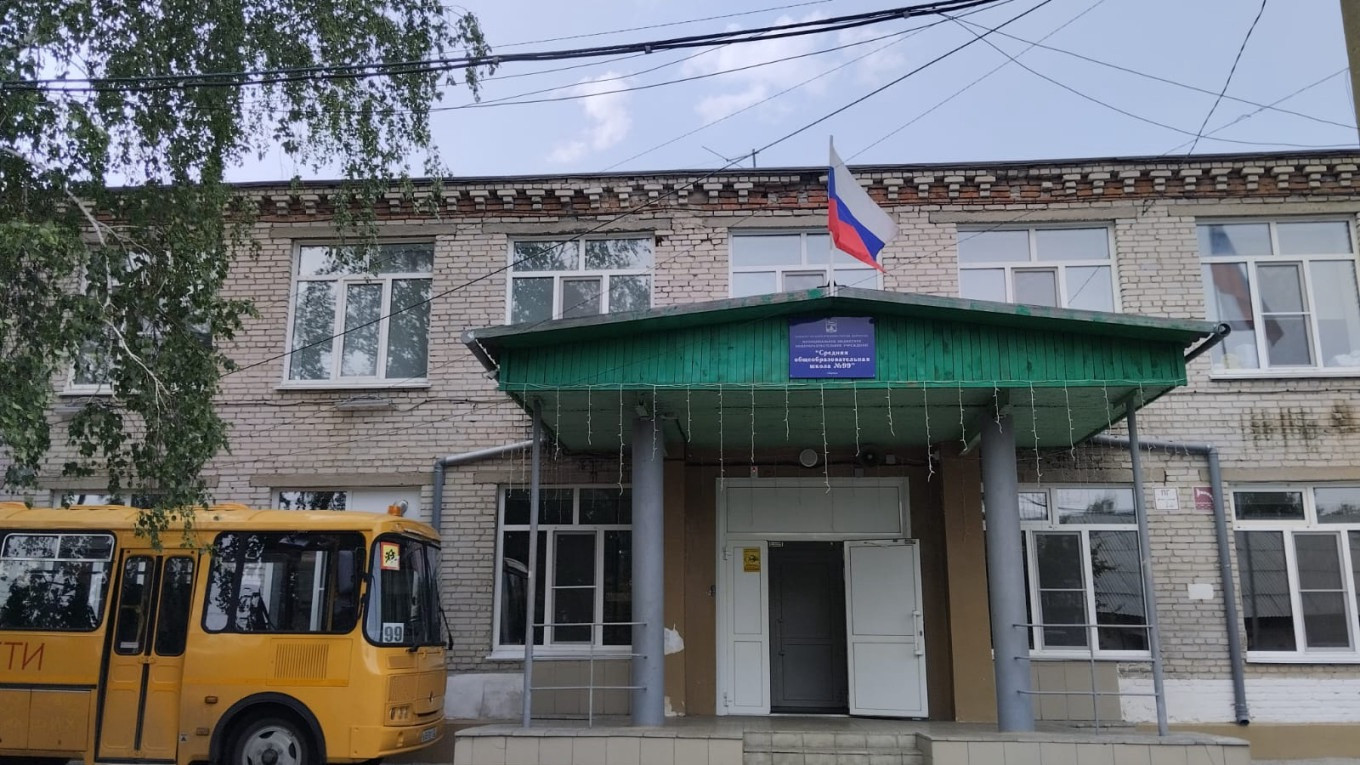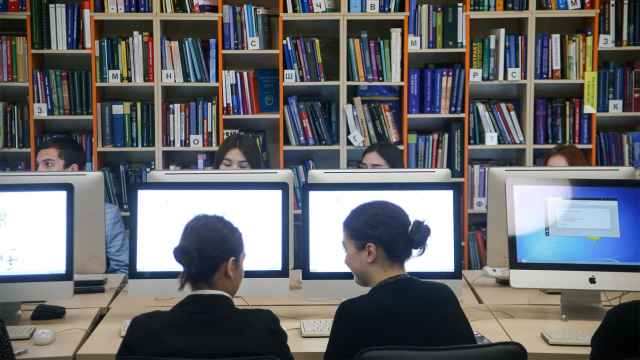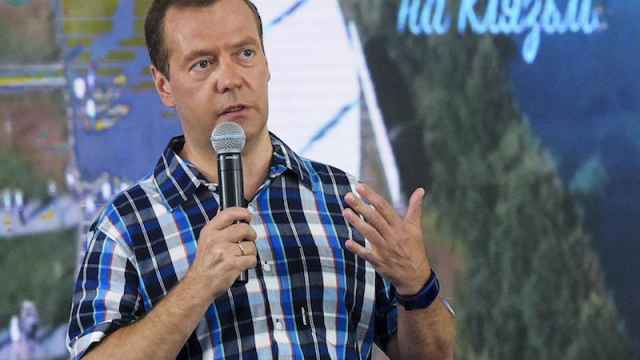From discussions with friends and colleagues, it is clear that most people believe that Russian teachers and professors are silent in the face of the militarization of education because it is inevitable they will be met with the force of the state. However, I believe there is no evidence that it is statistically dangerous to actively protest the war while inside Russia’s education system, especially if you do not do it alone.
There is no evidence that there is even more than a 50% chance of repression. The past three years show plenty of evidence of this. For example, an anti-war petition signed by thousands of Russian scientists has been in the public domain for almost three years. How many of them have been subjected to repression? A fraction of a percent.
A recent report on the state of academic freedoms in Russia only managed to find about 200 cases of academics being punished in the entire country over three years. That number includes not only criminal cases (there are almost none, by the way), but politically-motivated dismissals and expulsions.
In short, the chance of repression for Russian academics is not only less than 50%, but below 1%. Compare this with the independent media, who have faced harassment, imprisonment and even murder even before the war. To put it bluntly, in education, the Russian Federation bears little resemblance to a bloody regime rattling its shackles.
It is certainly convenient to argue that academics are facing repressions as seriously as in Stalin’s times. This claim allows one to receive European grants and avoid arguments with colleagues in Russia who question why they are receiving foreign money. It is also a way to avoid serious discussion of why Russian education has become a loyal ally of the regime.
I want to stress that the education system has become a staunch ally of the regime by choice. At this point, repressions have become possible not because the regime is bloody, but because there is no visible organized resistance. Simply put: repression in the education system is not because someone spoke out, but because they spoke out alone. The private college I founded, Novokolleg, was destroyed for political reasons. But instead of being destroyed because I publicly expressed my anti-war stance, it was targeted because I spoke out alone. Had a hundred other college principals done the same, I am sure there would have been no reprisals.
If so, then the responsibility for the repression should be placed not on the state, but on the educational community itself. Here we come to the important question of whether the Russian educational community is capable of grassroots self-organization to mount real resistance to state decisions. Most people believe it is not as. there are no real grassroots instincts in Russian society, especially in education.
That makes this story from Lesnoy, a micro-district of Barnaul, the capital of the Altai region, all the more interesting. There, two-thirds of the teachers at school No. 99 wrote a collective resignation letter to protest the dismissal of their principal at the very end of 2024. Over a month later, most teachers were still refusing to return to the school.
Teachers protesting against the mistreatment of a colleague is nothing new. But a small and crucial detail gives it a sign of the times — the conflict involved Alexander Sergeyev, a “veteran of the Defense Forces” who was employed at the school as both a watchman and a chess teacher after he returned to civilian life.
The school director, Vladimir Babak. asked Sergeyev to return a little early from his vacation and to extend his duty hours from 7 to 9 in the morning. In short, he demanded the unbelievable: for a veteran to work longer.
Sergeyev wrote a complaint against the director, accusing him of being insufficiently patriotic, etc. Because he was a veteran, Sergeyev’s complaint was considered a priority and the director was quickly removed from his position.
The liberal media quickly portrayed this as a conflict between a humanist principal and a militant veteran. But if you read the letter written by parents in defense of the principal you will see that the community did not see things that way. They defended Babak as a patriot who “educates the younger generation in the spirit of morality and patriotism” and “organizes and directs the pupils and teaching staff of the school to participate in actions to support our servicemen in the zone of the North-Eastern Military District.”
What the various parties in this story believe does not matter. What matters is that 15 out of the school’s 24 teachers quit in protest over Babak’s dismissal. By refusing to show up for work, They organized a collective action of disagreement with the state's policies by speaking out against a veteran. They promised that if they were not heard, they would “complain to higher authorities.”
The imagination of fighters for the freedoms of teachers in Russia at this point should picture the authorities descending on the homes of those who quit the next night. But of course, nothing of the sort happened.
Officials came to the school in January, when one of the rebels, the head teacher for educational work, was appointed acting director. After the head teacher, five of the dismissed returned to the school. The fate of the veteran remains unknown. But it seems that the authorities made concessions to the rebels because finding ten new teachers in the suburbs of Barnaul in the middle of the school year would be a lot more trouble than it is worth, no matter how socially upstanding the complainant is.
It is unlikely that this case will be included in reports on the violation of academic freedoms in Russia or be discussed at Western conferences. It presents evidence that runs counter to the idea that Russian teachers are helpless against the state: if they really want to, they take a pen and paper and send their superiors to hell. Their superiors, realizing that the country is strained with teachers, are no less determined to meet their needs.
Why did they not protest against “Conversations about important things,” writing letters to soldiers and other pseudo-patriotic militaristic nonsense? The answer is plain to see. However, it is unlikely to be what liberals want to hear.
A Message from The Moscow Times:
Dear readers,
We are facing unprecedented challenges. Russia's Prosecutor General's Office has designated The Moscow Times as an "undesirable" organization, criminalizing our work and putting our staff at risk of prosecution. This follows our earlier unjust labeling as a "foreign agent."
These actions are direct attempts to silence independent journalism in Russia. The authorities claim our work "discredits the decisions of the Russian leadership." We see things differently: we strive to provide accurate, unbiased reporting on Russia.
We, the journalists of The Moscow Times, refuse to be silenced. But to continue our work, we need your help.
Your support, no matter how small, makes a world of difference. If you can, please support us monthly starting from just $2. It's quick to set up, and every contribution makes a significant impact.
By supporting The Moscow Times, you're defending open, independent journalism in the face of repression. Thank you for standing with us.
Remind me later.








